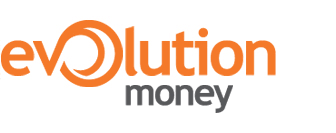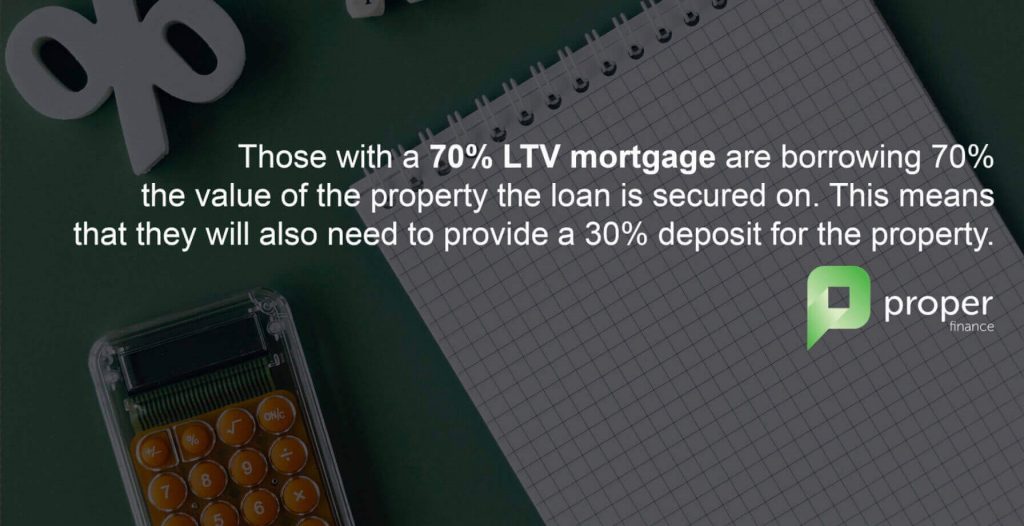Our Lenders
We work with Lending Expert to give you access to a panel of leading lenders well placed to meet your needs at the lowest rates.










When it comes to mortgages, there are various different deals available – from low-deposit mortgages to those with 70% LTV, there’s a range of borrowing options to explore.
If you’ve saved up a sizeable deposit, you may be able to take out a mortgage with a low LTV, which could reduce the interest rates on the mortgage, and make it more affordable to borrow overall. Here, Proper Finance take a look at 70% LTV mortgages – a type of secured loan with a number of benefits to explore.
What Is Loan-to-Value?
Loan-to-Value (or LTV) is a percentage of the property’s value the lenders are willing to provide you in the mortgage. This percentage is typically deemed as the amount of risk the lender is taking on with the loan, a 70% LTV meaning the lender will provide the borrower with 70% the value of the property it’s being secured on.
The higher the LTV on a mortgage, the greater the potential loss the lender faces if the loan is not repaid. Therefore, the higher the LTV the greater the risk for the lender. It’s possible to get a range of different LTVs on your mortgage, provided you meet the eligibility and affordability criteria for this. Some LTV mortgages include:
90%-95% LTVs can also be known as low-deposit mortgages, where the borrower will need 5%-10% of a deposit to be considered (depending on the lender and the other details of the prospective borrower’s application).
While a higher LTV means the borrower must provide less of the deposit, 90%-95% mortgages will typically come with higher fees and interest rates compared to mortgages with lower LTVs, as the lender is increasing the risk of lending the bigger the amount they loan.
How Does a 70% LTV Mortgage Work?
Those with a 70% LTV mortgage are borrowing 70% the value of the property the loan is secured on. This means that they will also need to provide a 30% deposit on the property, which can often seem like a lot depending on the value of the property, but if possible could open up a range of available 70% LTV mortgage opportunities.
Before taking out any type of mortgage, it’s important to discuss this with a qualified mortgage advisor, helping you to ensure that this finance option best suits your needs and personal circumstances.
Partnered with
Is a 70% LTV Mortgage Good?
Yes, a 70% LTV mortgage can be a great option for those who are able to afford a 30% deposit for the property in question.
The higher the deposit you can afford the lower the interest rates may be on your mortgage. Therefore, opting for a low LTV could lower the mortgage’s interest rates.
70% LTV mortgages can be great for those who can properly afford them, as they could offer prospective borrowers better interest rates, as well as requiring a somewhat realistically affordable deposit of 30%.
While 30% of a property’s value will likely still be a fair chunk of money, it’s still potentially an attainable amount for the prospective borrower to provide.

Can I Get a 70% LTV Mortgage?
You can get a 70% LTV mortgage so long as you meet the lender’s eligibility criteria. 70% LTV mortgages can be a good borrowing option to consider for those who have 30% of the property’s value available for a deposit.
You can explore this percentage LTV so long as you meet the lender’s requirements. While the eligibility criteria can vary depending on the lender and the applicant’s personal and financial circumstances, as this is a certain type of mortgage, there is certain criteria commonly required in order to be eligible.
For example, if you don’t have 30% of the property’s value to put down as a deposit, you won’t be eligible for a 70% LTV mortgage. However, if you don’t meet this requirement, there are a range of other LTV mortgages borrowers can apply for with lower deposit amounts.
What Is the Eligibility Criteria for a 70% LTV Mortgage?
Only those who can properly afford a 70% LTV mortgage and are able to prove this to the mortgage provider should be able to take this type of secured loan out.
While having a 30% deposit for the property purchase is required, it’s not the only criteria you’ll have to meet with lenders. Other criteria can apply, including the following:
- You’re able to pass a credit check with the lender
- You’re within the age requirements for the mortgage
- You’re able to prove you can afford the loan according to the lender’s criteria and affordability checks
- You’re able to provide sufficient proof of ID
The exact criteria you’ll be expected to meet for a 70% LTV mortgage will depend on the lender you choose and the requirements they lay out for prospective borrowers.
How Can I Boost My Chances of Getting a 70% LTV Mortgage?
There are a few effective ways that may help you to boost your chances of getting a 70% LTV mortgage, including the following:
- Build up a 30% deposit – a 70% LTV mortgage will require borrowers to put down a 30% deposit. Therefore, one vital thing to help you move forward with this type of loan is having the necessary deposit available.
- Improve your credit score – one thing lenders can check when assessing your affordability is your credit score. By building this score up and making sure it meets any criteria the lender may have for this can further help to boost your chances of success with the application.
Why Should I Get a 70% LTV Mortgage?
There are numerous benefits of taking out a 70% LTV mortgage. When taking out this LTV, you could potentially experience better interest rates than those offered with higher LTVs. In addition to this, you may also have a better chance of approval with a higher deposit if your credit score is less than ideal.
While a 70% LTV can offer various different benefits, it’s only suitable for particular types of applicants. While have to cough up less than half the property’s value, a 30% deposit can still add up to a substantial amount of money, which many may not be able to afford.
If you can’t realistically provide a 30% deposit, there’s still a whole host of LTVs you could consider instead, including 75%, 80%, 85% and beyond.
Partnered with